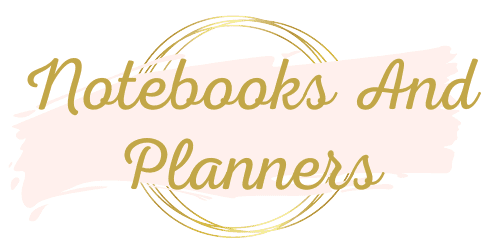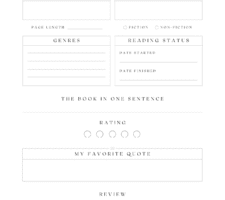Last Updated on November 7, 2023 by Jen
Journaling should feel like a cozy chat with a dear friend – a safe space where you can share all your honest thoughts and feelings without fear. But sometimes, the worry of someone discovering our most private reflections can sneak in, transforming this sanctuary into a place of unease. Don’t worry, you’re not alone in this feeling, and there are ways to navigate around it.
Top 3 Reasons People Fear Honest Journaling
1. Fear of Exposure
This is perhaps the most common fear that prevents people from journaling honestly. The thought that someone might stumble upon our journal and read our deepest secrets, insecurities, and thoughts is truly terrifying. It’s essentially our inner world laid bare, open to scrutiny and judgment.
What if someone stumbles upon it while cleaning?
What is someone we love finds it and thinks we are crazy?
What if we go to the hospital unexpectedly and someone we often write about negatively finds it?
This fear of exposure often leads to self-censorship and avoidance of certain topics.
2. Fear of Facing Unpleasant Emotions
Sometimes, it’s not the fear of others discovering our thoughts, but the fear of confronting our own negative emotions that holds us back.
Writing about our struggles can bring up a whirlwind of uncomfortable feelings that we would rather not deal with. In fact, we may go to great lengths not to deal with these feelings.
3. Fear of Perceived Weakness
Expressing our feelings, especially negative ones, can make us feel vulnerable and weak. We’ve often been conditioned to believe that strength means not showing any signs of struggle or emotional turmoil. As such, the act of documenting our struggles in a journal can feel like a direct contradiction to this belief.
Here are some examples of how these fears can manifest in our journaling practices:
- Fear of Exposure: This fear can lead to the practice of ‘code-writing,’ where we intentionally obscure our thoughts and feelings using vague language or abbreviations. We may even use fake names. This serves as a protective shield, ensuring that even if someone were to read our journal, they wouldn’t fully grasp the depth or meaning of our thoughts. However, it also prevents us from fully expressing and processing our experiences.
- Fear of Facing Unpleasant Emotions: This fear can result in avoidance behavior. We might find ourselves skipping over days when we experienced negative emotions, or focusing solely on the positive aspects of our day while ignoring any struggles or challenges we faced. This can hinder our ability to self-reflect and grow from our experiences.
- Fear of Perceived Weakness: This fear can result in self-censorship. We might find ourselves avoiding writing about certain topics or feelings, believing that these reveal a weakness within us. This often leads to a one-dimensional reflection that doesn’t accurately capture our true emotional experience.
Overcoming Fear of Honest Journaling
If you want to start journaling in a more authentic way, you should try all of the following things.
1. Choose A Safe Way to Journal
Choosing a safe and secure method for journaling can be an instrumental step towards overcoming your fears.
One way to ensure the privacy of your journal entries is by using a lockable physical journal. This traditional approach offers a tangible, personal experience and enhances the psychological benefits of journaling.
Knowing that your thoughts are secured under lock and key can help alleviate the fear of exposure.
Alternatively, if you’re tech-savvy, various secure digital journaling apps are available. These provide password-protected, encrypted spaces where you can spill your thoughts without worrying about them being seen by others. Apps like Penzu, Day One, or Journey offer strong privacy features and the convenience of journaling anytime, anywhere.
The important thing is to choose a method that makes you feel safe and comfortable. When you feel secure in your journaling space, you’ll be more likely to write honestly and without fear.
2. Create Boundaries For Journaling
Another crucial step in overcoming the fear of honest journaling is determining who, if anyone, will have access to your journal and under what conditions. Generally, your journal is meant to be a personal space, a sanctuary for your thoughts and feelings. As such, it’s perfectly acceptable to keep your journal private and for your eyes only.
However, if you decide to share parts of your journal — perhaps with a trusted friend or a mental health professional — it should be under terms you are comfortable with. Set clear boundaries, and make sure the other person understands and respects these.
For instance, you could decide only to share certain pages, topics, or entries from your journal, and only at times when you feel ready and willing to discuss them.
Remember, your journal is your personal space. You have full control over who gets to see it. By setting clear boundaries, you can further alleviate worries about exposure and encourage more honest writing.
3. Write For Yourself, Not For An Audience
The essential part to remember about journaling is that it is meant for your personal growth and self-understanding. It is a tool for self-expression, not entertainment for others.
When you write, prioritize your need for honest self-reflection over the concern of what others might think if they were to read it. This mindset will be the biggest help for you to journal with more honesty.
Journaling is about you — your thoughts, your feelings, your journey. Accepting this can help alleviate the fear of vulnerability that may come with candidly writing down your thoughts.
Always bear in mind that your journal is a safe place to explore your innermost feelings without judgment or fear of exposure. It’s your private space for self-discovery, self-healing, and personal growth.
Benefits of Honest Journaling
To get into the mindset of being honest while journaling, you need to believe the benefits outweigh the drawback. There are so many reasons to journal honestly.
1. Increased self-awareness and introspection
Journaling with honesty opens the door to increased self-awareness and introspection. By documenting your thoughts and feelings, you are able to gain a clearer understanding of your own mental and emotional landscape.
It provides a platform for you to analyze your reactions, decisions, and behaviors in a non-judgmental space. Over time, this practice can lead to powerful insights about your personality traits, values, and motivations, fostering a deeper connection with your true self.
Through introspective journaling, you become the observer of your own life, learning to understand your feelings and behaviors, and ultimately cultivating a strong sense of self-awareness.
2. Improved mental and emotional health
Honest journaling serves as a therapeutic outlet for emotional expression. By articulating your thoughts and feelings on paper, you’re actually releasing pent-up emotions which can alleviate stress and anxiety.
It can provide a safe space for you to confront your fears and insecurities without fear of judgment or retribution. This practice of externalizing your emotions has been linked to enhanced mood, better sleep, and a general sense of well-being.
In fact, numerous studies have found that expressive writing can significantly improve mental health, aiding in the management of depression, anxiety, and other mental health conditions.
Encouraging yourself to openly discuss your struggles and fears in your journal can be a crucial step in your emotional healing journey.
3. Enhanced problem-solving and decision-making skills
Honest journaling isn’t just a means for emotional release; it’s also a powerful tool for problem-solving and decision making. When faced with a problem or a tough decision, writing about it in your journal can help break down the issue into smaller, manageable parts.
By viewing the problem in black and white, you can objectively analyze the situation, evaluate different perspectives, and consider potential solutions.
Moreover, writing allows your subconscious mind to explore and connect ideas, often leading to innovative solutions that you might not have considered otherwise. Over time, this practice can significantly improve your problem-solving and decision making skills, instilling a sense of confidence and control over your life.
4. Encourages creativity and self-expression
Journaling, particularly when conducted in a physical format, unleashes a wave of creativity and self-expression. It allows you to explore your feelings and thoughts in a more tangible manner, making artistic or symbolic representations of your innermost thoughts that may not be possible with digital formats.
Furthermore, this practice of honest writing helps you become more articulate, enhancing your ability to express your feelings and ideas more effectively. Through this medium, you can explore your personality, aspirations, and fears in the safety and privacy of your own space.
It’s natural to feel apprehensive about confronting your deeper emotions, but remember, your journal is a personal, sacred space; it’s meant to serve as a mirror to your soul, reflecting your authentic self, free from external judgments or expectations.
It’s Time To Journal Honestly
If you’re struggling to be completely honest in your journal, know that you are not alone. Many people experience a fear of being vulnerable and having their innermost thoughts exposed. However, it’s important to recognize that this fear is often rooted in our societal expectations of perfection and the pressure to always present ourselves in a positive light.
But as we all know, life is not always rainbows and sunshine. We ALL have struggles, fears, and insecurities that we may not feel comfortable sharing with others. That’s where journaling comes in; it allows us to be raw and unfiltered, giving voice to our inner turmoil without any external pressure.
So next time you sit down to journal, challenge yourself to be completely honest. Allow yourself to write about the things that bother you, even if it’s uncomfortable. Remember, your journal is a safe space for you to express yourself freely without fear of judgment.
And if you still find it difficult to be completely honest, try starting small. Write about something that may seem insignificant but still holds emotional weight for you. As you continue this practice, it will become easier to open up and express your true emotions.
Another helpful tip is to use journal prompts or guided journaling exercises. This can provide structure and direction for your writing, making it easier to address difficult topics.
Lastly, know that journaling is a process and it takes time to fully let go of our fears and inhibitions. But the benefits of being completely honest in your journal are immeasurable. It can provide clarity, release pent-up emotions, and help you better understand yourself.





